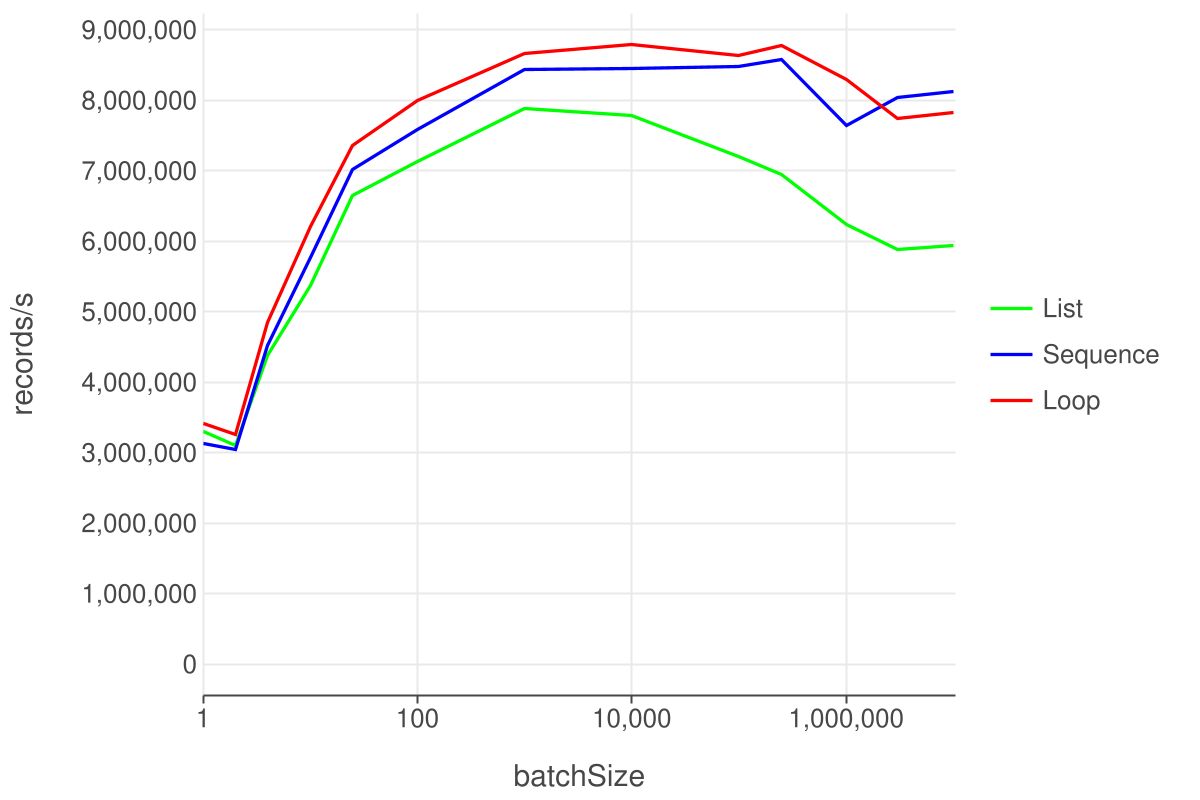sequence-revenge
Revenge of the sequence
Chris Banes recently wrote an article Should you use Kotlin Sequences for Performance?. It concluded that lists are faster than sequences in evey case.
In my opinion that benchmark is flawed: the code measuring the performance of sequences starts with creating a list and ends with creating a list. This puts it at a disadvantage compared to the code measuring lists, which already happens to be in this format.
What do programs actually do?
In the real world programs processing records usually have the following high-level structure:
read -> deserialize -> process -> serialize -> write
For example a program reads an incoming HTTP request and writes a database insert query. Or the other way around, it reads from a database and writes an HTTP response.
A better testcase
We can implement such a program without the use of intermediate lists for output and input. Below is an example using kotlinx-io for input and output. It processes a simple record type which can serialize and deserialize itself.
fun processRecordsUsingSequence(sourceCsv: Source, destinationCsv: Sink) {
sequence {
while (true) {
val line = sourceCsv.readLine() ?: break
yield(line)
}
}.map {
Record.fromCsv(it)
}.filter {
it.isValid()
}.map {
it.update()
}.forEach {
it.writeToCsv(destinationCsv)
}
}
The equivalent code using lists is almost identical:
fun processRecordsUsingList(sourceCsv: Source, destinationCsv: Sink) {
buildList {
while (true) {
val line = sourceCsv.readLine() ?: break
add(line)
}
}.map {
Record.fromCsv(it)
}.filter {
it.isValid()
}.map {
it.update()
}.forEach {
it.writeToCsv(destinationCsv)
}
}
For completeness we also include the code expressed as a single loop. This should top the charts in terms of performance:
fun processRecordsUsingLoop(sourceCsv: Source, destinationCsv: Sink) {
while (true) {
val line = sourceCsv.readLine() ?: break
val entity = Record.fromCsv(line)
if (entity.isValid()) {
continue
}
val newEntity = entity.update()
newEntity.writeToCsv(destinationCsv)
}
}
Benchmark results

Sequences are faster than lists, at ~any size. The difference in throughput is small, but keep in mind that sequences also have a huge advantage in memory footprint.
Links
- Full code: src/main/kotlin
- Repost on /r/kotlin
Looking for work?
Consider applying at Zenmo as a developer